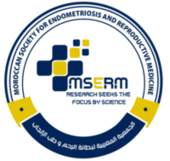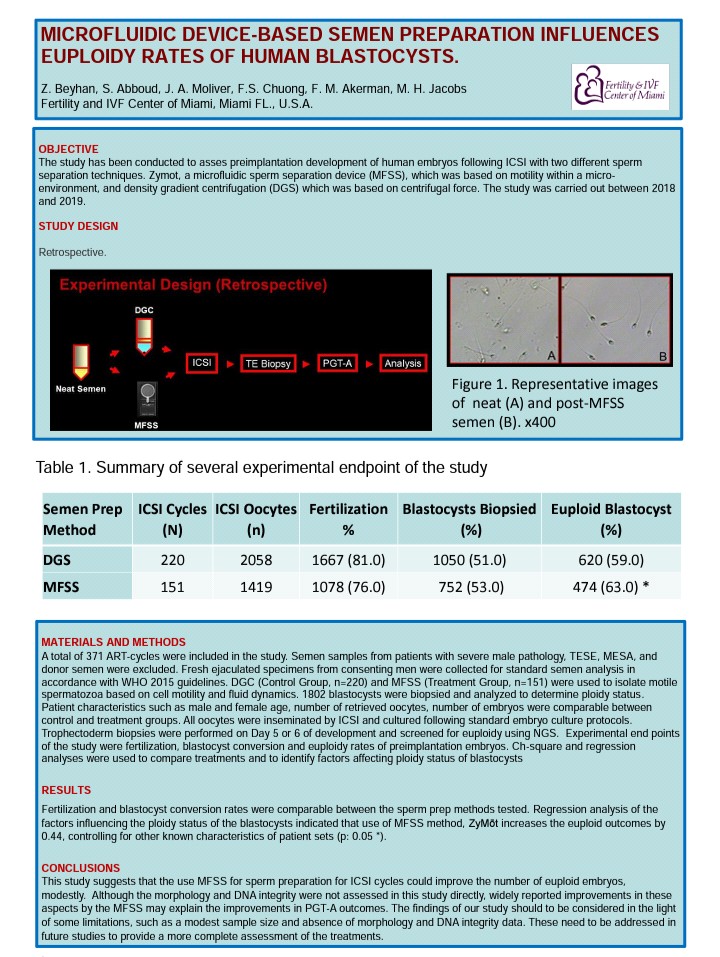Track: ART – LAB
Poster : ART Lab: Outcome Predictors
Zeki Beyhan
Laboratory Director
Fertility and IVF Center of Miami
Miami, Florida
Objective: The study has been conducted to assess preimplantation development of human embryos following ICSI with two different sperm separation techniques. Zymot, a microfluidic sperm separation device (MFSS), which was based on motility within a micro-environment, and density gradient centrifugation (DGS) which was based on centrifugal force. The study was carried out between 2018 and 2019. DESIGN: Retrospective MATERIALS AND
Methods: A total of 371 ART-cycles were included in the study. Semen samples from patients with severe male pathology, TESE, MESA, and donor semen were excluded. Fresh ejaculated specimens from consenting men were collected for standard semen analysis in accordance with WHO 2015 guidelines. DGC (Control Group, n=220) and MFSS (Treatment Group, n=151) were used to isolate motile spermatozoa based on cell motility and fluid dynamics. 1802 blastocysts were biopsied and analyzed to determine ploidy status . Patient characteristics such as male and female age, number of retrieved oocytes, number of embryos were comparable between control and treatment groups. All oocytes were inseminated by ICSI and cultured following standard embryo culture protocols. Trophectoderm biopsies were performed on Day 5 or 6 of development and screened for euploidy using NGS. Experimental end points of the study were fertilization, blastocyst conversion and euploidy rates of preimplantation embryos. Ch-square and regression analyses were used to compare treatments and to identify factors affecting ploidy status of blastocysts.
Conclusions: This study suggests that the use MFSS for sperm preparation for ICSI ccyles could improve the number of euploid embryos, modestly. Although the morphology and DNA integrity were not assessed in this study directly, widely reported improvements in these aspects by the MFSS may explain the improvements in PGT-A outcomes. The findings of our study should to be considered in the light of some limitations, such as a modest sample size and absence of morphology and DNA integrity data. These need to be addressed in future studies to provide a more complete assessment of the treatments.
ASMR official sponsorship in the publications of the virtual ASMR conference October 17-21 October 2020

